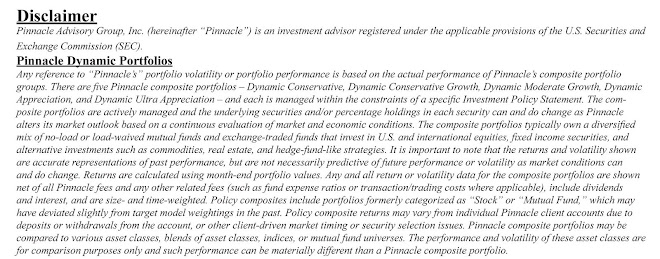“In this business if you’re good, you’re right six times out of ten. You’re never going to be right nine times out of ten.” – Peter Lynch
Investing is a demanding profession that requires constant attention to a multitude of perpetually moving parts. As hard as many investors work to come up with well-formed theories that lead to intelligent and accurate forecasts and ultimately profitable trades, the reality is that no one is correct all of the time. As human beings, we are always at risk to heuristics, which are ingrained traits that explain how people solve problems and make decisions, but can also lead to systematic errors and biases. An example would be anchoring, which according to Wikipedia occurs when people place too much importance on one aspect of an event, causing an error in accurately predicting the utility of a future outcome.
As a practical example, earlier this year the investment team here at Pinnacle made a decision to hedge our portfolios with an Exchange Traded Note (ETN) that attempts to mimic an index of implied equity market volatility. At the time, we were concerned that several different market indicators were warning of a possible market decline. If the correction occurred, we believed there was a high probability that market volatility would rise, and the value of the ETN along with it, which presumably would have helped offset some of the decline in other parts of the portfolio.
As it turned out, the correction was shallower than expected, and we were quickly down on the trade. At that point we were faced with reassessing the position given the most up to date market conditions. Had we anchored to our previous view based on outdated information, we could have decided to simply hold the security and hope our view panned out in the longer term. But hope is not a strategy, and as it turned out it was our willingness to assess the newest information available and admit that we were wrong that aided us in making the decision to sell the security. It wasn’t an easy decision and it felt awful to book the loss. But as bad as it felt to sell at a loss and admit to a failed trade, it would clearly feel worse if we were still a holder of the ETN today, given that it’s down an additional 20% from where we sold it.
Successful investing is largely about having a repeatable process, doing the homework, having conviction, paying attention to detail, and not being afraid to go against the crowd. But it also takes a certain amount of humility to admit when one is wrong. Make no mistake about it, knowing when to admit you are wrong can save you money.

